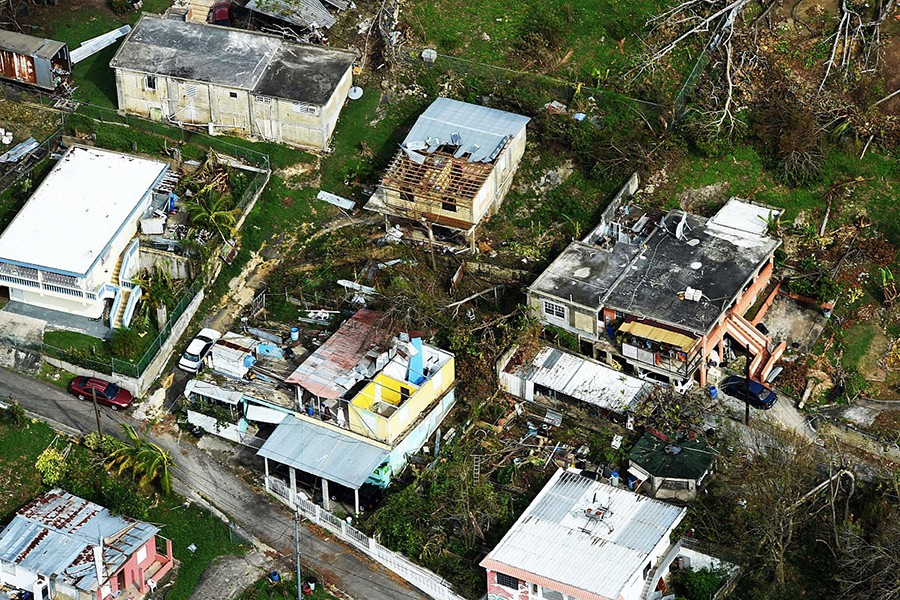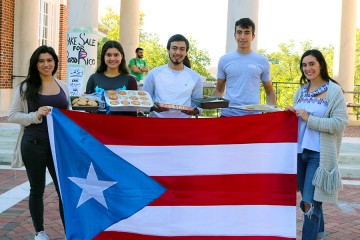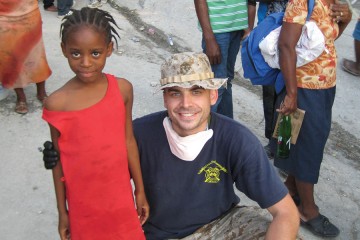Nearly two weeks ago, Hurricane Maria ravaged the Caribbean, bringing peak winds of 175 miles per hour and causing an estimated $40-85 billion in damages, mostly in the U.S. territory of Puerto Rico.
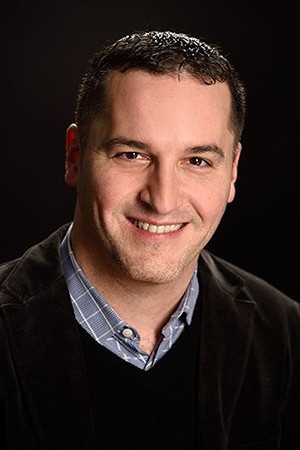
Image caption: Roberto Busó-García
By the time the storm made landfall in the territory, it was the 10th most powerful Atlantic hurricane on record and the strongest storm to hit the island since 1928. Maria destroyed Puerto Rico's roads, buildings, and electrical grid, plunging the island's 3.4 million citizens—Americans—into an ongoing, desperate situation: without functioning infrastructure, people are in danger of dehydration and starvation, and without adequate electricity or fuel, many of the island's hospitals are unequipped to respond.
The Hub reached out to Roberto Busó-García, the director of the Film and Media Master of Arts program in Johns Hopkins University's Krieger School of Arts and Sciences, for his thoughts on the storm, the destruction, and the path to rebuilding his native Puerto Rico.
Do you have loved ones on the island, and have you been able to reach them and confirm their safety?
My immediate and extended family is there, almost all of them—parents, two brothers and their families, my friends, and many of my peers, because I made my last couple of film projects there. My crewmembers, my actors—they're like family, too.
I have been incredibly lucky because I have been pretty much in constant touch with my parents, and through them with my brothers. They all live within walking distance of each other and they had cell phone coverage—I mean, it's spotty, but I've been in touch with them. But I have a lot of friends I haven't reached yet.
When did you realize the level of damage that would be dealt to the island?
When I saw the eye of a Category 4 hurricane going over the island with winds over 150 miles per hour. The devastation, the impact, that a hurricane like that has—I mean, that's Mother Nature. I was there for Hurricane Georges in 1998 and Hurricane Hugo in 1989, and I remember them vividly. For Hugo we were without water for three weeks, and some people on the island were without water for months. And those hurricanes were not as bad as this one.
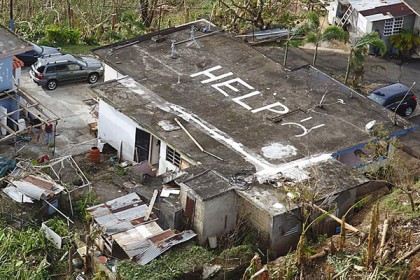
Image caption: While conducting search and rescue in the mountains of Puerto Rico, a Black Hawk helicopter located this home with 'HELP' painted it is roof.
Image credit: U.S. Customs and Border Protection
An enormous difference, though, has been the federal response to Maria. The federal response under the Trump administration was at least four days too late, and four days too late in a humanitarian crisis is a crime, in my opinion. Not to say that the task at hand, obviously, isn't incredibly challenging and difficult, but the resources, the money, and the knowledge are there, and what is wrong is not to act in time.
No one could predict that there would be such an enormous problem with the supply chain. People are sending all kinds of donations to Puerto Rico, and the supplies are getting to the island's ports, but the people of Puerto Rico are not receiving it. Whether it's because FEMA is assessing before acting, or whether it's that the local government is not coordinating with the truckers union, whatever it is, it's wrong. So that's the kind of thing that you can't predict happening. And it's a real tragedy. But that's on the governments, the leaders and the politicians. That's not the storm.
Is it harder to advocate for aid when Puerto Rico doesn't have its own representation in Congress?
You know, this storm is a great reminder both to people on the island and to everyone else in the world that Puerto Rico is a territory of the U.S. We have been a colony for more than 500 years—first a colony of Spain, and then for the last 100-plus years, a territory of the United States. We were granted third-class U.S. citizenship by the Jones–Shafroth Act in 1917, and this is what happens. We are third-class citizens, and this is the proof once again that there is a difference between a sovereign state and a colony, or a U.S. state and a colony. We cannot trade, and now everyone knows about the Jones Act, which was yet another obstacle to us receiving aid. Our powerlessness to change or amend these types of laws all comes from being a colony.
A lot of people are throwing around the word resiliency about the people of Puerto Rico, and one of the great truths about how we have been resilient through centuries is even though we have been denied the power to decide for ourselves our political future, we have kept our unique sense of self and an identity as a people and as a nation, really. In the island, for the most part, politics go out the window in times like these and everyone comes together as a nation, even if we don't have the legal definition as such, and that's beautiful. But that's not enough.
Tell me more about the Puerto Rico you know.
Puerto Rico is home, and it will always be. Puerto Rico is 100 miles by 35 miles, it's an incredibly small island—it's only slightly larger than Rhode Island. But it has almost 3.5 million people, and we're all really, incredibly different. Puerto Rico has beaches, and mountains, and rivers, and caves, and deserts, forests, offshore islands. I think that the geography has also informed how differently Puerto Ricans think, even in such a small area. Through the centuries, they have been proven to be some of the most amazing musicians, entrepreneurs, artists, writers, scientists—
—And filmmakers—
—Yes, and so the arts are incredibly important to the island. Not only the consumption of arts but also artistic self-expression in diverse forms.
And what about the physical devastation of the island?
I think about 80 percent of the crops were destroyed in this hurricane. There won't be agriculture in Puerto Rico for at least a year, I've read. The whole electrical grid is gone, so there won't be power for a long time. Only 5 percent of the island has any power a week after the hurricane, and even some hospitals don't have power yet.
Not to mention the loss of the cultural landmarks.
Well some of the landmarks are gone—but more importantly, people's homes are gone. How do you start again? That's the challenge now. You have to make sure that everyone has access to water and food and shelter, and that there is a system in place for that to continue.
Also see
We also have to be smart about the decisions we make to fix this, because we have to think about the long game, too. Everything has changed. What will the new Puerto Rico look like? And I say that in terms of the physical aspect of the island and the infrastructure, because the real Puerto Rico is its people. The people are still there—there's no hurricane that's going to change that. And it will be up to the people of Puerto Rico to fight and overcome all of the challenges both from natural disasters and political disasters. We have to find it within ourselves to come together and rebuild the island.
That's who we are. Puerto Rico is that—the relationships we have with each other, how much we love our families, and how much we love ourselves as a people, as a nation, even with our differences. And that's what's going to come out now, and that's one of the reasons that I love the island and my people so much.
Posted in Voices+Opinion
Tagged disaster response, natural disasters, hurricanes




